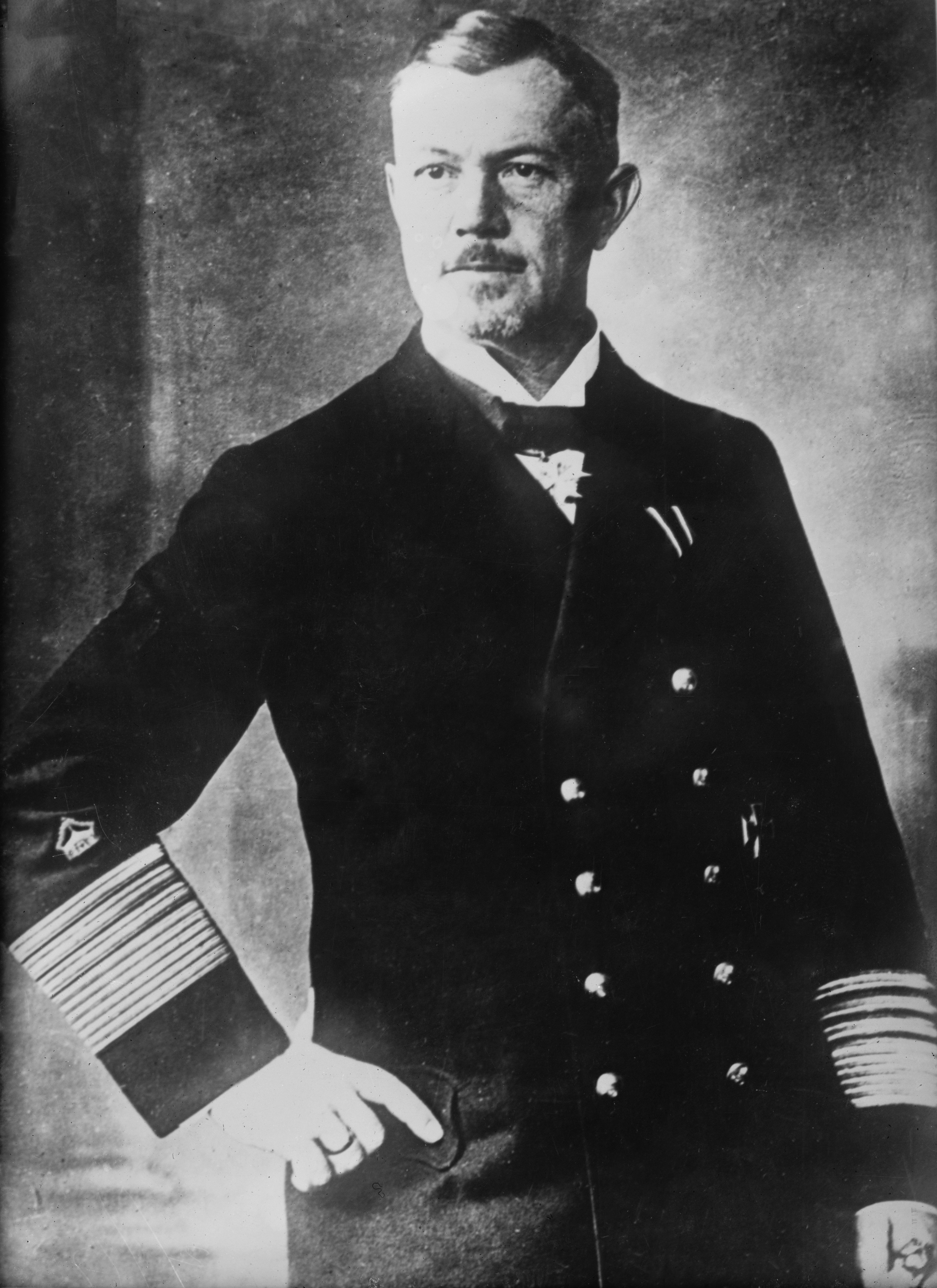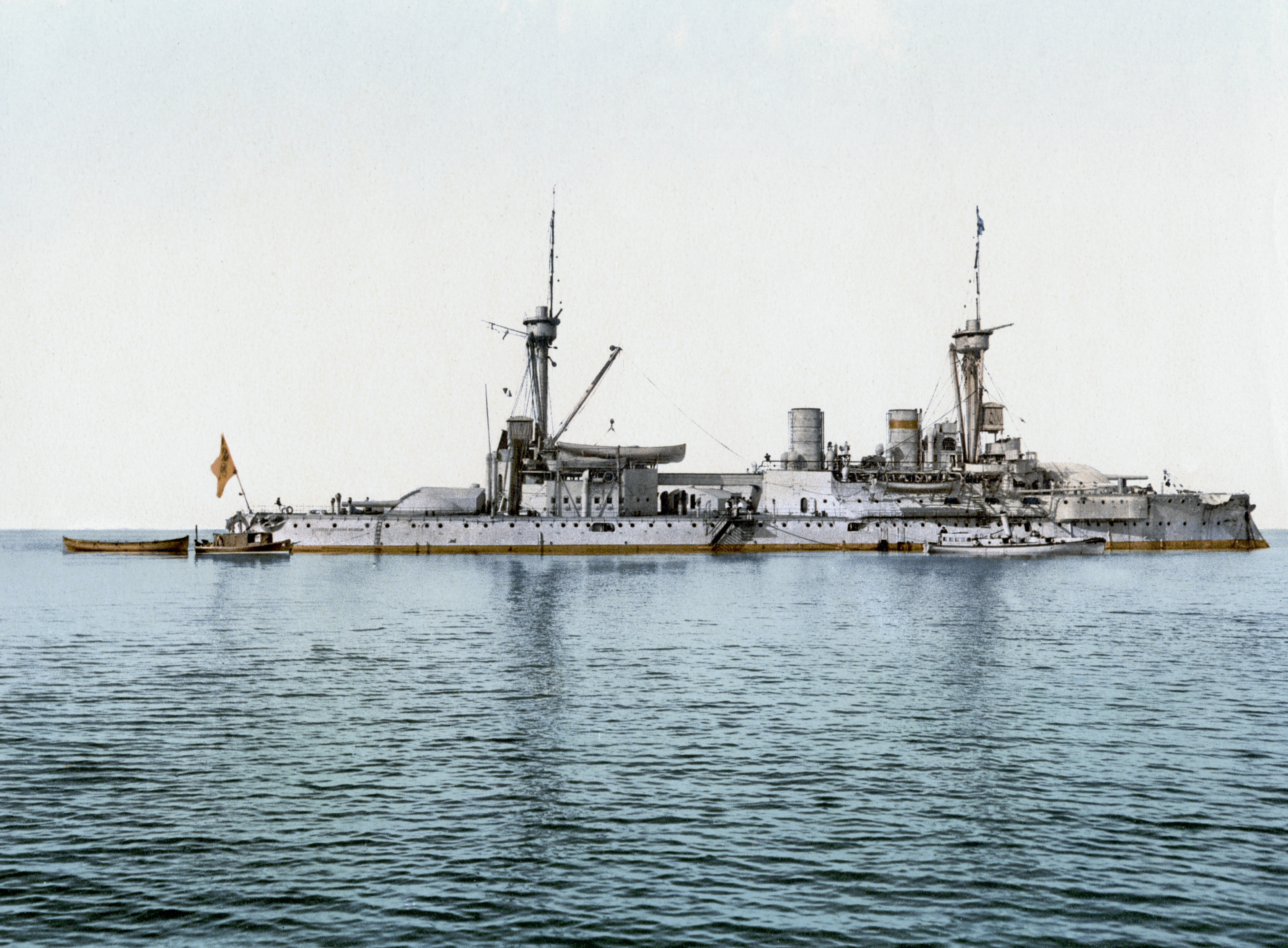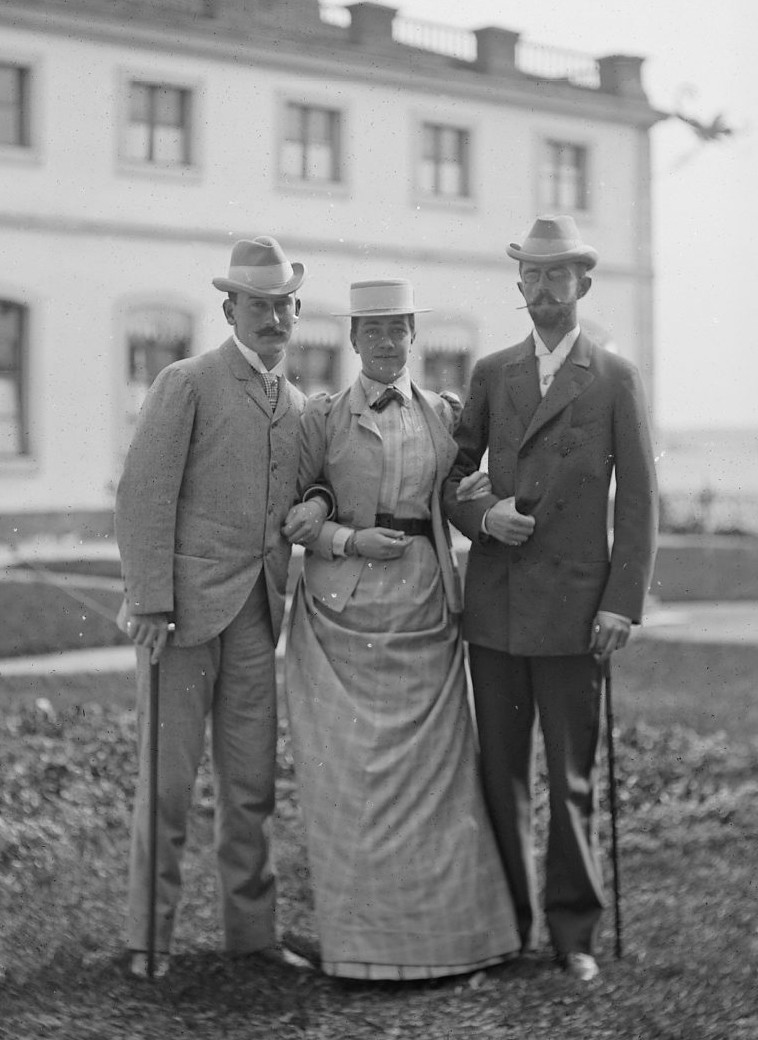|
German Revolution Of 1918–1919
The German Revolution or November Revolution (german: Novemberrevolution) was a civil conflict in the German Empire at the end of the First World War that resulted in the replacement of the German federal constitutional monarchy with a democratic parliamentary republic that later became known as the Weimar Republic. The revolutionary period lasted from November 1918 until the adoption of the Weimar Constitution in August 1919. Among the factors leading to the revolution were the extreme burdens suffered by the German population during the four years of war, the economic and psychological impacts of the German Empire's defeat by the Allies, and growing social tensions between the general population and the aristocratic and bourgeois elite. The first acts of the revolution were triggered by the policies of the Supreme Command () of the German Army and its lack of coordination with the Naval Command (). In the face of defeat, the Naval Command insisted on trying to precipita ... [...More Info...] [...Related Items...] OR: [Wikipedia] [Google] [Baidu] |
Revolutions Of 1917–1923
The Revolutions of 1917–1923 was a revolutionary wave that included political unrest and armed revolts around the world inspired by the success of the Russian Revolution and the disorder created by the aftermath of World War I. The uprisings were mainly socialist or anti-colonial in nature. Some socialist revolts failed to create lasting socialist states. The revolutions had lasting effects in shaping the future European political landscape, with for example the German Revolution of 1918–1919, collapse of the German Empire and the Dissolution of Austria-Hungary, dissolution of Austria-Hungary. World War I mobilized millions of troops, reshaped political powers and drove social turmoil. From the turmoil outright revolutions broke out, massive strikes occurred, and many soldiers mutinied. In Russian Empire, Russia, the Emperor of all the Russias, Tsar was overthrown during the February Revolution, which was followed by the Russian Civil War. Many French Third Republic, French ... [...More Info...] [...Related Items...] OR: [Wikipedia] [Google] [Baidu] |
Bavarian Soviet Republic
The Bavarian Soviet Republic, or Munich Soviet Republic (german: Räterepublik Baiern, Münchner Räterepublik),Hollander, Neil (2013) ''Elusive Dove: The Search for Peace During World War I''. McFarland. p.283, note 269. was a short-lived unrecognised socialist state in Bavaria during the German Revolution of 1918–1919.Gaab (2006), p.58 It took the form of a workers' council republic. Its name is also sometimes rendered in English as the Bavarian Council Republic; the German term means a republic of councils or committees: council or committee is also the meaning of the Russian word . It was established in April 1919 after the demise of Kurt Eisner's People's State of Bavaria and sought to establish a socialist soviet republic in Bavaria. It was overthrown less than a month later by elements of the German Army and the paramilitary . Several individuals involved in its overthrow later joined the Nazi Party during its subsequent rise to power. Background The roots of the r ... [...More Info...] [...Related Items...] OR: [Wikipedia] [Google] [Baidu] |
Friedrich Ebert
Friedrich Ebert (; 4 February 187128 February 1925) was a German politician of the Social Democratic Party of Germany (SPD) and the first President of Germany (1919–1945), president of Germany from 1919 until his death in office in 1925. Ebert was elected leader of the SPD on the death in 1913 of August Bebel. In 1914, shortly after he assumed leadership, the party became deeply divided over Ebert's support of war loans to finance the German war effort in World War I. A moderate social democrat, Ebert was in favour of the ''Burgfriedenspolitik, Burgfrieden'', a political policy that sought to suppress squabbles over domestic issues among political parties during wartime in order to concentrate all forces in society on the successful conclusion of the war effort. He tried to isolate those in the party opposed to the war and advocated a split. Ebert was a pivotal figure in the German Revolution of 1918–19. When Germany became a republic at the end of World War I, he became its ... [...More Info...] [...Related Items...] OR: [Wikipedia] [Google] [Baidu] |
Reinhard Scheer
Carl Friedrich Heinrich Reinhard Scheer (30 September 1863 – 26 November 1928) was an Admiral in the Imperial German Navy (''Kaiserliche Marine''). Scheer joined the navy in 1879 as an officer cadet and progressed through the ranks, commanding cruisers and battleships, as well as senior staff positions on land. At the outbreak of World War I, Scheer was the commander of the II Battle Squadron of the High Seas Fleet. He then took command of the III Battle Squadron, which consisted of the newest and most powerful battleships in the navy. In January 1916, he was promoted to Admiral and given control of the High Seas Fleet. Scheer led the German fleet at the Battle of Jutland on 31 May – 1 June 1916, one of the largest naval battles in history. Following the battle, Scheer joined those calling for unrestricted submarine warfare against the Allies, a move the Kaiser eventually permitted. In August 1918, Scheer was promoted to the Chief of Naval Staff; Admiral Franz von Hipper rep ... [...More Info...] [...Related Items...] OR: [Wikipedia] [Google] [Baidu] |
Franz Von Hipper
Franz Ritter von Hipper (13 September 1863 – 25 May 1932) was an admiral in the German Imperial Navy (''Kaiserliche Marine''). Franz von Hipper joined the German Navy in 1881 as an officer cadet. He commanded several torpedo boat units and served as watch officer aboard several warships, as well as Kaiser Wilhelm II's yacht . Hipper commanded several cruisers in the reconnaissance forces before being appointed commander of the I Scouting Group in October 1913. He is most famous for commanding the German battlecruisers of the I Scouting Group during World War I, particularly at the Battle of Jutland on 31 May – 1 June 1916. During the war, Hipper led the German battlecruisers on several raids of the English coast, for which he was vilified in the English press as a "baby killer". His squadron clashed with the British battlecruiser squadron at the Battle of Dogger Bank in January 1915, where the armored cruiser was lost. At the Battle of Jutland, Hipper's flagship ... [...More Info...] [...Related Items...] OR: [Wikipedia] [Google] [Baidu] |
Wilhelm Groener
Karl Eduard Wilhelm Groener (; 22 November 1867 – 3 May 1939) was a German general and politician. His organisational and logistical abilities resulted in a successful military career before and during World War I. After a confrontation with Erich Ludendorff the Quartermaster general () of the German Army, Groener was reassigned to a field command. When Ludendorff was dismissed in October 1918, Groener succeeded him. Groener worked with the new Social Democratic president Friedrich Ebert to foil a left-wing take-over during the German Revolution of 1918–19. Under his command, the army bloodily suppressed popular uprisings throughout Germany. Groener tried to integrate the military, which was dominated by an aristocratic and monarchistic officer corps, into the new republic. After resigning from the army in the summer of 1919, Groener served in several governments of the Weimar Republic as minister of transportation, interior and defence. He was pushed out of the govern ... [...More Info...] [...Related Items...] OR: [Wikipedia] [Google] [Baidu] |
Paul Von Hindenburg
Paul Ludwig Hans Anton von Beneckendorff und von Hindenburg (; abbreviated ; 2 October 1847 – 2 August 1934) was a German field marshal and statesman who led the Imperial German Army during World War I and later became President of Germany from 1925 until his death in 1934. During his presidency, he played a key role in the Nazi seizure of power in January 1933 when, under pressure from advisers, he appointed Adolf Hitler as Chancellor of Germany. Hindenburg was born to a family of minor Prussian nobility in Posen. Upon completing his education as a cadet, he enlisted in the Third Regiment of Foot Guards as a second lieutenant. He then saw combat during the Austro-Prussian and Franco-Prussian wars. In 1873, he was admitted to the prestigious '' Kriegsakademie'' in Berlin, where he studied for three years before being appointed to the Army's General Staff Corps. Later in 1885, he was promoted to the rank of major and became a member of the Great General Staff. Following a f ... [...More Info...] [...Related Items...] OR: [Wikipedia] [Google] [Baidu] |
Erich Ludendorff
Erich Friedrich Wilhelm Ludendorff (9 April 1865 – 20 December 1937) was a German general, politician and military theorist. He achieved fame during World War I for his central role in the German victories at Liège and Tannenberg in 1914. Following his appointment as First Quartermaster-general (german: Erster Generalquartiermeister) of the Imperial Army's Great General Staff in 1916, he became the chief policymaker in a ''de facto'' military dictatorship that dominated Germany for the rest of the war. After Germany's defeat, he contributed significantly to the Nazis' rise to power. Erich Ludendorff came from a family of the minor nobility in Ludendorff, (now Kruszewnia), located in the Prussian province of Posen. After completing his education as a cadet, he received his commission as a junior officer in 1885. Later in 1893, Ludendorff was admitted to the prestigious German War Academy and was recommended by its commandant to the General Staff Corps only a year later. ... [...More Info...] [...Related Items...] OR: [Wikipedia] [Google] [Baidu] |
Ludwig III Of Bavaria
Ludwig III (Ludwig Luitpold Josef Maria Aloys Alfried; 7 January 1845 – 18 October 1921) was the last King of Bavaria, reigning from 1913 to 1918. Initially he served in the Bavarian military as a lieutenant and went on to hold the rank of Oberleutnant during the Austro-Prussian War. He entered politics at the age of 18 becoming a member of the Bavarian Legislature and was a keen participant in politics, supporting electoral reforms. Later in life he served as regent and ''de facto'' head of state from 1912 to 1913, ruling for his cousin, Otto. After the Bavarian parliament passed a law allowing him to do so, Ludwig deposed Otto and assumed the throne for himself. He led Bavaria during World War I. His short reign was seen as championing conservative causes and he was influenced by the Catholic encyclical ''Rerum novarum''. After the German Revolution of 1918, the German Empire was dissolved and the Weimar Republic was created. As a result of this revolution, the Bavarian thron ... [...More Info...] [...Related Items...] OR: [Wikipedia] [Google] [Baidu] |
Prince Maximilian Of Baden
Maximilian, Margrave of Baden (''Maximilian Alexander Friedrich Wilhelm''; 10 July 1867 – 6 November 1929),Almanach de Gotha. ''Haus Baden (Maison de Bade)''. Justus Perthes (publishing company), Justus Perthes, Gotha, 1944, p. 18, (French). also known as Max von Baden, was a German prince, general, and politician. He was heir presumptive to the throne of the Grand Duchy of Baden, and in October and November 1918 briefly served as the last chancellor of the German Empire and minister-president of Prussia. He sued for peace on Germany's behalf at the end of World War I based on U.S. President Woodrow Wilson's Fourteen Points, which included immediately transforming the government into a parliamentary system, by handing over the office of chancellor to Social-Democratic Party of Germany, SPD Chairman Friedrich Ebert and unilaterally proclaiming the abdication of Emperor Wilhelm II. Both events took place on 9 November 1918, the beginning of the Weimar Republic. Early life Born ... [...More Info...] [...Related Items...] OR: [Wikipedia] [Google] [Baidu] |
Wilhelm II, German Emperor
Wilhelm II (Friedrich Wilhelm Viktor Albert; 27 January 18594 June 1941) was the last German Emperor (german: Kaiser) and King of Prussia, reigning from 15 June 1888 until his abdication on 9 November 1918. Despite strengthening the German Empire's position as a great power by building a powerful navy, his tactless public statements and erratic foreign policy greatly antagonized the international community and are considered by many to be one of the underlying causes of World War I. When the German war effort collapsed after a series of crushing defeats on the Western Front in 1918, he was forced to abdicate, thereby marking the end of the German Empire and the House of Hohenzollern's 300-year reign in Prussia and 500-year reign in Brandenburg. Wilhelm II was the son of Prince Frederick William of Prussia and Victoria, German Empress Consort. His father was the son of Wilhelm I, German Emperor, and his mother was the eldest daughter of Queen Victoria of the United Kingdom and ... [...More Info...] [...Related Items...] OR: [Wikipedia] [Google] [Baidu] |
November 1918 In Alsace-Lorraine
November 1918 was the period of transition when the region of Alsace-Lorraine passed from German to French sovereignty at the end of World War I. During this month, international events were linked to domestic troubles, particularly the German Revolution. Overview In the wake of the German Revolution, Marxist councils of workers and soldiers ''(Soldaten- und Arbeiterräte)'' formed in Mulhouse on November 9 and in Colmar and Strasbourg on November 10, in parallel to other such bodies set up in the general revolutionary atmosphere of the expiring Reich and in imitation of the Russian equivalent ''soviets''. Under the Empire of 1871–1918, the territory constituting the Reichsland (or Imperial Province) of Alsace-Lorraine was administered directly by the imperial government in Berlin, and was granted some measure of autonomy in 1911. Similarly, the Kaiser was also the local sovereign of the Land, so that Kaiser Wilhelm II's abdication on November 9 involved the fall of the mona ... [...More Info...] [...Related Items...] OR: [Wikipedia] [Google] [Baidu] |










